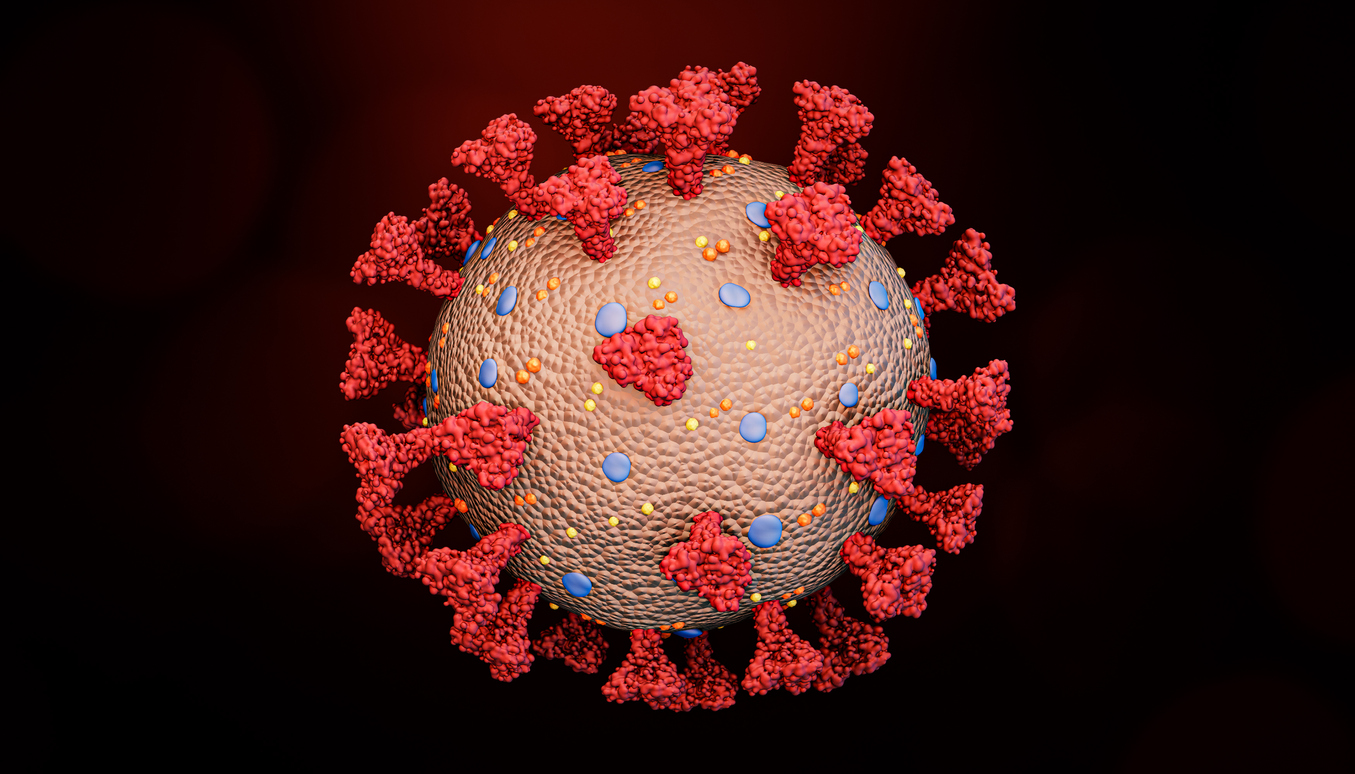Scientists aren't concerned about new coronavirus variant eluding current vaccines


A free daily email with the biggest news stories of the day – and the best features from TheWeek.com
You are now subscribed
Your newsletter sign-up was successful
The identification of a potentially more transmissible coronavirus variant, primarily in the United Kingdom, has scientists and government officials, alike, sounding the alarm. The U.K. has tightened lockdown measures, and several continental European countries are halting flights to Great Britain. There's no evidence the variant affects the severity of COVID-19 infections, but increased infectiousness would make curbing the spread even harder, which is why certain areas of the U.K. may face restrictions until there's widespread vaccine availability. But could mutations like the one in the U.K. render those vaccines ineffective?
The consensus answer is reassuring for the time being. Daniel Altman, a professor of immunology at Imperial College London, told The Finanical Times the new variant should actually strengthen the case "for all to get vaccinated as soon as possible," explaining that the mutations won't be able to fool the neutralizing antibodies produced by the shot. Francois Balloux, director of the University College London Genetics Institute, concurred, saying "it's not a strain that should be able to escape protection provided by immunization from the current vaccines or prior infection."
That said, Trevor Bedford, a virologist who has kept a close watch on the virus throughout the pandemic, does think there should eventually be a process in place to update the vaccines so they can keep up with more significant mutations, much like there is for the flu vaccine. He is not, however, worried about that affecting the 2021 vaccine rollout, while also clarifying that potential future drops in vaccine efficacy will likely be "modest." Read more at The Financial Times and check out Bedford's Twitter thread below. Tim O'Donnell
The Week
Escape your echo chamber. Get the facts behind the news, plus analysis from multiple perspectives.

Sign up for The Week's Free Newsletters
From our morning news briefing to a weekly Good News Newsletter, get the best of The Week delivered directly to your inbox.
From our morning news briefing to a weekly Good News Newsletter, get the best of The Week delivered directly to your inbox.
A free daily email with the biggest news stories of the day – and the best features from TheWeek.com
Tim is a staff writer at The Week and has contributed to Bedford and Bowery and The New York Transatlantic. He is a graduate of Occidental College and NYU's journalism school. Tim enjoys writing about baseball, Europe, and extinct megafauna. He lives in New York City.
-
 5 blacked out cartoons about the Epstein file redactions
5 blacked out cartoons about the Epstein file redactionsCartoons Artists take on hidden identities, a censored presidential seal, and more
-
 How Democrats are turning DOJ lemons into partisan lemonade
How Democrats are turning DOJ lemons into partisan lemonadeTODAY’S BIG QUESTION As the Trump administration continues to try — and fail — at indicting its political enemies, Democratic lawmakers have begun seizing the moment for themselves
-
 ICE’s new targets post-Minnesota retreat
ICE’s new targets post-Minnesota retreatIn the Spotlight Several cities are reportedly on ICE’s list for immigration crackdowns
-
 Trump HHS slashes advised child vaccinations
Trump HHS slashes advised child vaccinationsSpeed Read In a widely condemned move, the CDC will now recommend that children get vaccinated against 11 communicable diseases, not 17
-
 FDA OKs generic abortion pill, riling the right
FDA OKs generic abortion pill, riling the rightSpeed Read The drug in question is a generic version of mifepristone, used to carry out two-thirds of US abortions
-
 RFK Jr. vaccine panel advises restricting MMRV shot
RFK Jr. vaccine panel advises restricting MMRV shotSpeed Read The committee voted to restrict access to a childhood vaccine against chickenpox
-
 Texas declares end to measles outbreak
Texas declares end to measles outbreakSpeed Read The vaccine-preventable disease is still spreading in neighboring states, Mexico and Canada
-
 RFK Jr. shuts down mRNA vaccine funding at agency
RFK Jr. shuts down mRNA vaccine funding at agencySpeed Read The decision canceled or modified 22 projects, primarily for work on vaccines and therapeutics for respiratory viruses
-
 Measles cases surge to 33-year high
Measles cases surge to 33-year highSpeed Read The infection was declared eliminated from the US in 2000 but has seen a resurgence amid vaccine hesitancy
-
 Kennedy's vaccine panel signals skepticism, change
Kennedy's vaccine panel signals skepticism, changeSpeed Read RFK Jr.'s new vaccine advisory board intends to make changes to the decades-old US immunization system
-
 Kennedy ousts entire CDC vaccine advisory panel
Kennedy ousts entire CDC vaccine advisory panelspeed read Health Secretary RFK Jr. is a longtime anti-vaccine activist who has criticized the panel of experts
